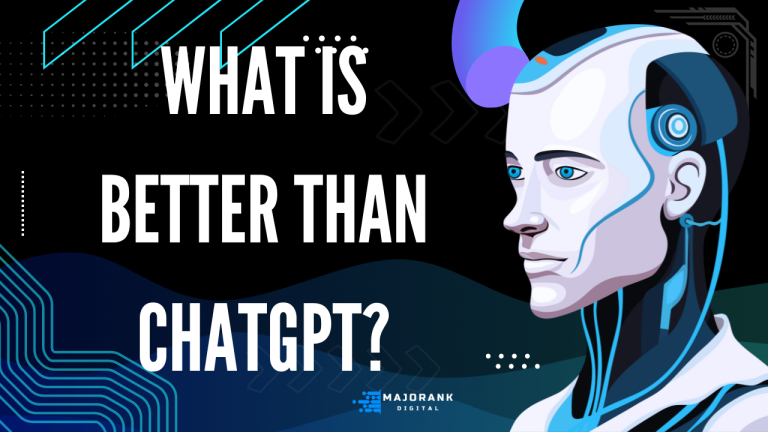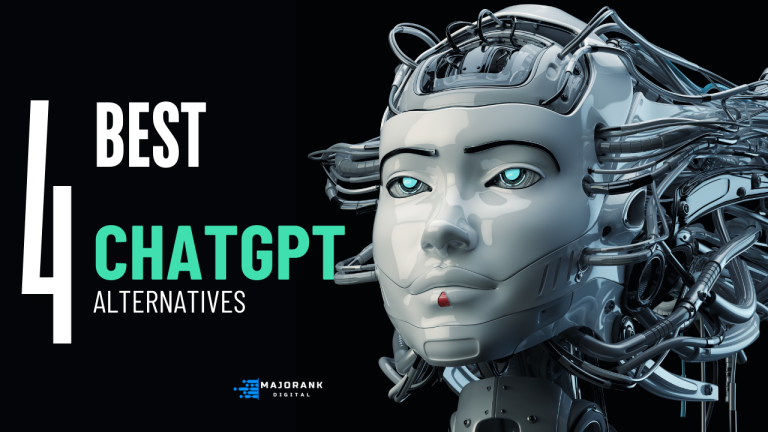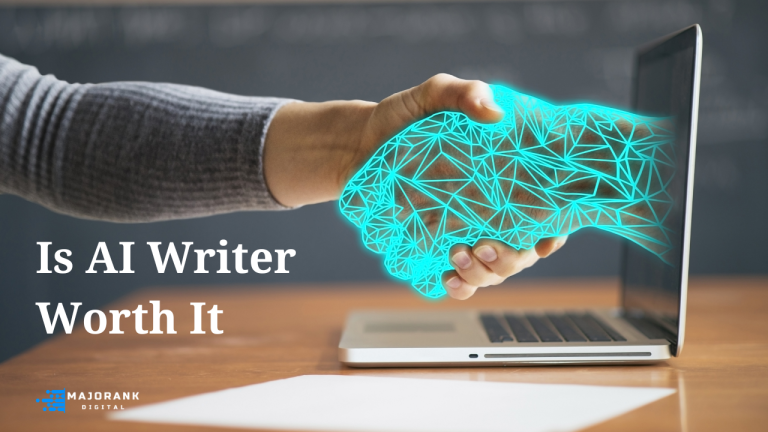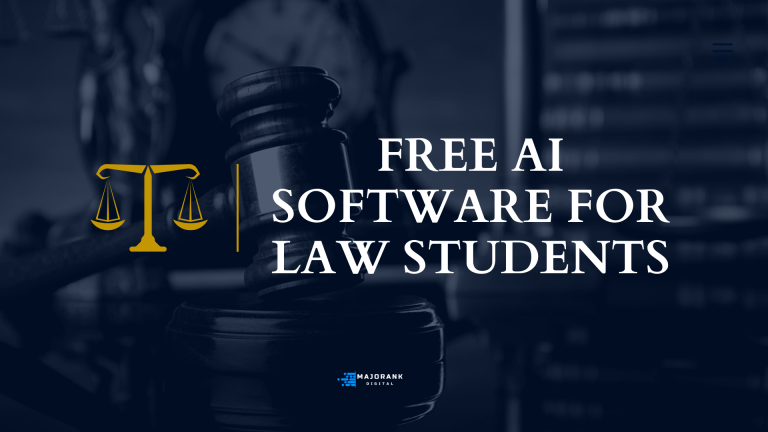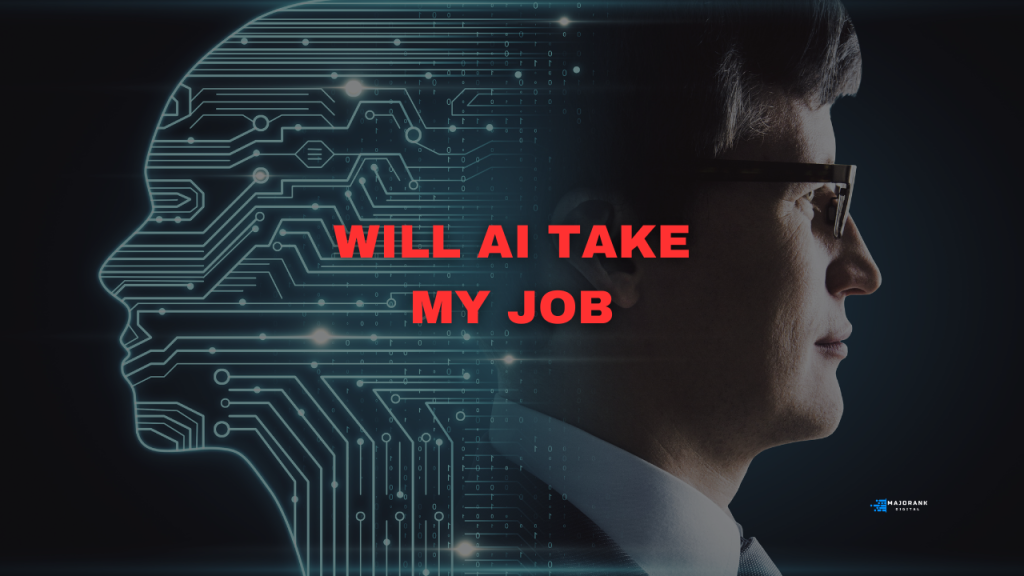
Imagine walking into your favorite local cafe one morning. You’re expecting a warm greeting from the barista who knows your order by heart. But instead, you’re met with a shiny, silver robot, swiftly making lattes and serving customers with mechanical precision. You look around, and all the staff have been replaced by machines. It’s quick and efficient, sure, but something feels off—the warmth, the personal touch, is gone.
This scenario may sound like science fiction, but it’s not too far from reality. AI and automation are steadily making their way into the workforce, transforming how we work and live. The question on many people’s minds is: “Will AI take my job?” Let’s explore the topic together and separate fact from fiction.
Will AI Take My Job?
AI is unlikely to take every job, but it is poised to transform many roles significantly. In some cases, AI will handle routine, repetitive tasks, freeing up humans for more creative and strategic work. For some professions, however, the risk of automation is higher—particularly in jobs that involve predictable tasks, data analysis, or basic problem-solving.
As AI evolves, it will also create new roles and industries that we can’t yet fully imagine. The key is to understand that AI is a powerful tool designed to assist rather than replace. It’s about working with AI, not competing against it, and being prepared for the changes that lie ahead.
Let’s delve deeper into what this means for different types of jobs, identifying which ones are secure, which ones are at risk, and which roles have already seen significant automation.
Must Read – Is AI Writer Worth It
What Jobs Will Not Be Taken Over by AI?
Not all jobs are equally at risk of being automated. There are several roles where human creativity, empathy, and complex decision-making remain irreplaceable. Let’s look at some examples:
- Creative Professions
Jobs that rely heavily on human imagination, innovation, and personal expression—like graphic designers, marketing managers, writers, and artists—are safer from automation. While AI can generate content or assist with idea generation, it struggles with crafting something genuinely original and emotionally resonant. Human creativity is complex and context-driven, making it hard for machines to replicate. - Healthcare and Emotional Support Roles
Careers like nursing, therapy, and social work involve emotional intelligence, human connection, and nuanced judgment, which AI cannot replicate. A study by the Brookings Institution found that healthcare roles, particularly those involving direct patient care, are among the least likely to be replaced by AI, as they require a combination of empathy, dexterity, and complex problem-solving. - Leadership and Strategic Decision-Making
Positions that involve strategic thinking, negotiation, and leadership—such as CEOs, managers, and consultants—are not easily replaced by AI. Machines may assist with data-driven decision-making, but the human ability to interpret ambiguous situations and make judgment calls based on experience is still unmatched. - Skilled Trades
Jobs like electricians, plumbers, and mechanics require on-the-spot problem-solving and adaptability in varied environments. While some aspects might be augmented with robotic tools, the nuanced skills involved in these trades are difficult to automate completely.
Which Jobs Are in Danger Due to AI?
AI is particularly suited to roles that are routine, repetitive, and data-driven. Here are some professions that face a higher risk of automation:
- Data Entry and Administrative Work
AI can efficiently handle repetitive administrative tasks such as scheduling, data entry, and simple reporting. According to a McKinsey Global Institute study, nearly 60% of repetitive administrative tasks can potentially be automated. This includes roles like payroll clerks, data entry specialists, and even some aspects of HR management. - Customer Service Representatives
Many companies are now implementing AI-powered chatbots and virtual assistants that can handle customer inquiries around the clock. A report by Gartner predicts that by 2025, 80% of customer service interactions could be handled by AI, reducing the need for human customer service representatives. - Manufacturing and Production Jobs
Factories have increasingly relied on automation to speed up production, from assembly lines to packaging and quality checks. This trend is expected to continue, with the International Federation of Robotics (IFR) reporting a 12% annual increase in the number of industrial robots worldwide.[1] - Basic Financial Services
Roles like bookkeeping, basic financial reporting, and entry-level financial analysis are at risk. AI’s ability to analyze large data sets quickly and accurately means that many of these jobs are becoming automated. The World Economic Forum estimates that 50% of finance tasks could be automated by 2025.[2]
Which Jobs Are Already Replaced by AI?
While AI hasn’t taken over the world just yet, there are already several areas where it has had a significant impact. Let’s look at some jobs that have already seen automation take hold:
- Toll Booth Operators
Automated toll collection systems have almost completely replaced the need for human toll operators. Systems like E-ZPass in the U.S. have made toll collection faster, more efficient, and require minimal human oversight. - Retail Cashiers
Many supermarkets and retail chains have introduced self-checkout kiosks, reducing the demand for cashiers. While not every store has gone fully automated, this trend is likely to continue as stores aim to cut costs and improve efficiency. - Bank Tellers
ATMs and mobile banking apps have largely replaced the need for traditional bank tellers. Although banks still employ staff for more complex transactions, the routine work that bank tellers once handled has been automated. - Travel Agents
Booking flights, hotels, and other travel-related services has moved online, with platforms and algorithms doing much of the work that travel agents used to handle. AI tools like chatbots can now assist travelers with booking, itinerary planning, and travel information.
Why AI Isn’t a Job-Thief—But a Job Changer
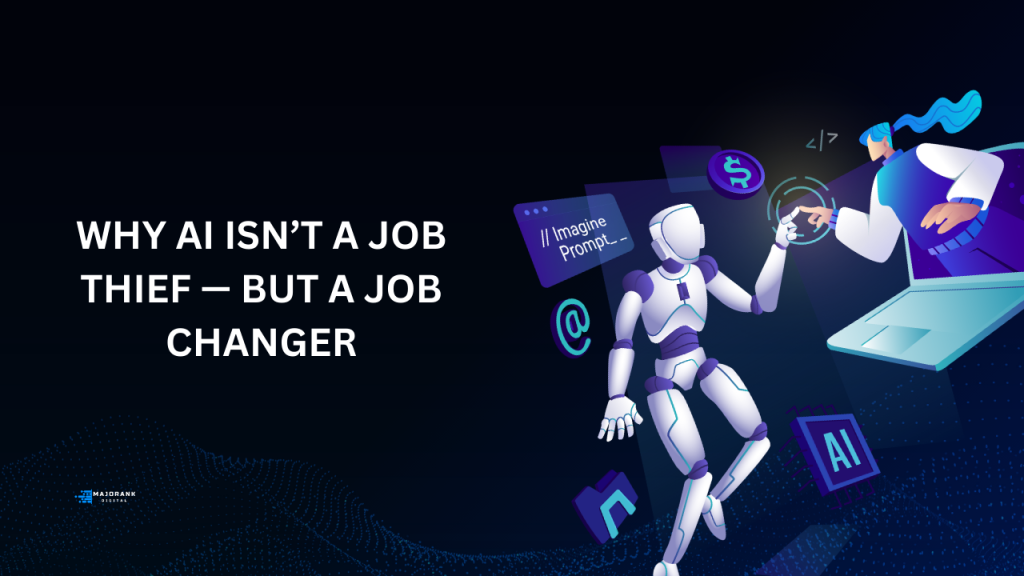
The reality is that while some jobs may be displaced, AI is not here to take all of our jobs; it’s here to transform them. According to the World Economic Forum, AI will create 97 million new jobs by 2025, particularly in fields like cybersecurity, data analysis, AI development, and more.
There will be a shift from roles that require routine tasks to those that demand creative problem-solving, adaptability, and the ability to work alongside advanced technologies. Jobs will evolve rather than vanish entirely.
Industries That Stand to Benefit from AI
Cybersecurity: As threats become more sophisticated, AI will play a significant role in identifying and mitigating risks. This creates a demand for cybersecurity experts to work with AI tools, fine-tune systems, and develop strategies.
Healthcare: AI in healthcare could revolutionize diagnostics, treatment planning, and administrative efficiency. This won’t eliminate jobs but will instead shift focus toward advanced roles like AI ethics experts and data scientists.
Green Technology: As the world moves toward sustainable solutions, AI will assist in optimizing energy consumption, managing resources, and even developing new eco-friendly technologies, opening up new roles in green technology.
The Takeaway: Embrace the Change
AI is not a monster lurking in the shadows, waiting to take your job. It’s a tool—a powerful one—that will transform the way we work. It’s about adapting, learning new skills, and being open to change. If you’re in a role that feels at risk, now might be the perfect time to explore opportunities for upskilling or transitioning to areas that AI is less likely to touch.
AI may alter the employment landscape, but it’s also sparking innovation, creating new career paths, and redefining industries. In the end, it’s not about if AI will take your job, but rather how you will evolve with it.
By staying informed, developing your unique human skills, and embracing technology, you can navigate the changes ahead and perhaps even find new, unexpected opportunities along the way.


